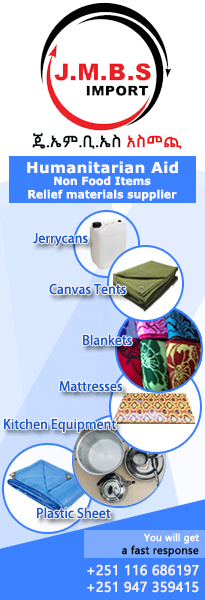The Commercial Bank of Ethiopia (CBE) released USD 500 million to the manufacturing sector. Experts in heavy industry said the amount was relatively high compared with the USD 300 million which was released in March; but it was still very small compared with the expectation and may be used to import a limited amount of inputs for several weeks of production with up to 20 percent production capacity. Representatives from Ethiopia’s manufacturing Industry said that they were forced to produce below their potential, at ten to twenty percent of their capacity, as a result of the hard currency shortage which led to the increase in prices and a deceleration in the economy.
In March, CBE allocated USD 300 million for the manufacturing sector which was much lower than the Bank’s USD 1 billion allocation for the sector in March 2017. In 2016, the bank allocated USD 2 billion for the industry. The steel industry is a major employer with 100 thousand jobs and according to the Ministry of Industry, it needs about USD 4 billion annually for optimum production.
Meanwhile, hard Currency shortage forced Kaluworks Ethiopia Plc, a well known aluminum cookware manufacturer, to close down. The company, which produced ferrous metals, operated for the last two decades before it was forced to shutdown for lack of inputs. The company was unable to start production since its closure several weeks ago. According to experts, Kaluworks’ closure shows how serious the hard currency shortage is. According to Ato Solomon Mulugeta, the General Manager of the Ethiopian Association of Basic Metals and Engineering Industries (EABMEI), though the company is not a member of the association, the association had information about the challenge it faces. He said, “We have recommended that the gaps seen in terms of giving priority to foreign currency. Every sector needs hard currency but needs to give priority and quotas to some of the significant sectors.”
The manufacturing sector actors declare that there is no clarity in terms of hard currency allocation. They stated that the government needs to have a clear process about the approval of letter of credit (LC). The External Loan and Supplier’s Credit Directive, which only allow foreign based companies to import input on credit, was amended by the National Bank of Ethiopia a few months ago. Local manufacturers protested against the amendment claiming that it was against the government’s policy to improve local investment.
Source: Capital



